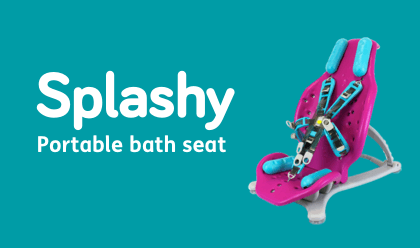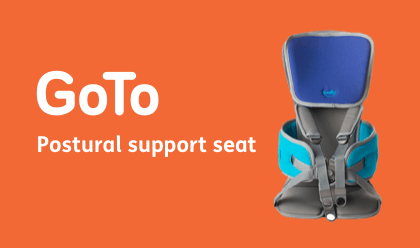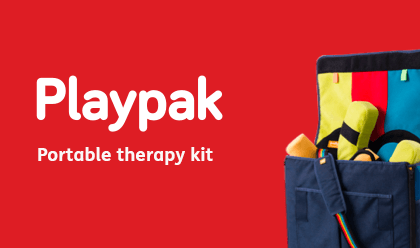What is Early Intervention and why is it so important?

Early intervention is the identification and provision of effective early support to children and young people who are at risk of poor outcomes. It incorporates social, educational, physical and mental health needs.
Preparing for the journey
There is so much that can be said about the world of early intervention. But the first thing I want to say is that it should come with a warning. It is often so painfully difficult to get a need for intervention recognised and resourced. You need to be resilient when battling for your child. You may need to find courage to be outspoken, and conviction to articulate. You’ll need to struggle through the times of despair and anguish, and muster energy and strength to persevere. Self-doubt may even start to kick in when, after being challenged and refuted numerous times. You question whether your fight is legitimate and justified.
Being resilient
The most gruelling of fights for our family was our battle to secure interventional feeding therapy for my child. Who has oral-motor disorder and acute sensory processing difficulties, which lead to a condition called ‘avoidant and restrictive food intake disorder’. The feeling of being continually ignored and placated was utterly shattering. We endured a long battle to secure his early-years place at his specialist school. A school which provides in-house therapists and specialist interventions, which was so imperative to his development. We have undergone ongoing battles with the social care system to acquire respite care. So that he, his young brother, myself and my husband, can have an element of respite and practical help at home.
In each situation it has felt like we have needed to demonstrate critical, dire circumstances, before our needs have been taken seriously.
Why early intervention is so important
The importance of early intervention should not be under-estimated. But sadly it is often the case that a child or young person fails to receive the interventional measures that they require. These failings can often be attributed to funding, lack of diagnosis or recognition of need, resource issues, and untimely interventions.
The key part of the phrase is the word ‘early’. Put simply, the earlier that a need is identified, and the sooner that an interventional measure is put in place. The greater the likelihood of a positive outcome.
In a child’s formative years, the brain’s neural connections are being activated at an exponential rate. As a result of everything they are living; mentally, visually, physically, experientially. Their experiences are having a direct impact on their rapidly developing brain architecture. Thus, early interventional measures for a young person can inform and influence the future hardwiring of a child’s inner computer. For an infant whose development is a cause for concern, early intervention can have a colossal impact on their physical health and cognitive progression.
Similarly, during the teenage years, a person’s brain is learning to shift the emotional learning from the primitive system, towards the sophisticated frontal lobes. This evolutionary process is moulded by all the raw external influences it experiences. Therefore, in the case of a mental health or social-emotional issue in older children and adolescents, interventional measures being implemented on a timely basis can have a profound effect on their trajectory into adulthood.
Recognition and acknowledgement phase
The very first stage for each and every family is the recognition and acknowledgement phase. Differences, disorders, and difficulties come in all shapes and sizes. And a parent must first identify, recognise, and act upon, their child’s presentation. Which can be a difficult and distressing process. This can often lead to stages of denial, depression or anger, before our practical minds take over and we are ready to ask for help. The critical path to early intervention can often be obstructed by the lack of a diagnosis and this obstacle can cause its own arduous difficulties.
Once ready to act, and furnished with evidence and fuelled by the desire to help our children, we move on to the stage of researching the best course of action. In some cases, this can be straight-forward, such as a physiotherapy for a physiological condition. But in other cases of mental health disorder, behavioural or communication problems, the interventional options are not so clear. This stage can be the toughest time for any parent, as our child’s condition often deteriorates or becomes more omni-present, while the ongoing efforts to source help to ‘fix’ it seems to be futile.
All too often we must fight to be heard. Whether it is to obtain a diagnosis in order to be included in a care pathway, or to be accepted for an intervention that has a long waiting list, or that has strict acceptance criteria. The most upsetting scenarios is where a child is not considered to be ‘serious enough’ to be accepted for treatment or intervention. In this country it is a sad fact that for specialist or costly interventions you often need to be ‘in crisis’ or ‘critical’ to be given any resource from the system.
My advice to parents and carers who are seeking early intervention:
- Gather evidence: Keep diaries, records, and photographic/video evidence. Insist on written clinic letters following each appointment, and statements from educational settings. Make notes of all phone conversations and appointments, and keep a timeline of everything.
- Know your statutory rights. Find out national and local timeframes such as Referral to Treatment (RTT), maximum waiting times, and any requirements for meeting treatment criteria. Acquaint yourself with your rights in the healthcare, social care and educational systems. This can be asking for referrals, second opinions, specialist consultations.
- Ask for help: Take a friend or family member to appointments. Tap into charities that have an abundance of material and resource to help you. And who may even be able to represent you at meetings. Persevere where progress is slow, even if that means calling and emailing frequently. Do not be afraid of being a nuisance!
- Fortify yourself with as much emotional strength and support as you can. Surround yourself with positive people that love, support, and understand you and your child. Do not be afraid to ask for help. Be prepared for a battle but be assured that it will be worth it once you come out the other side.






















